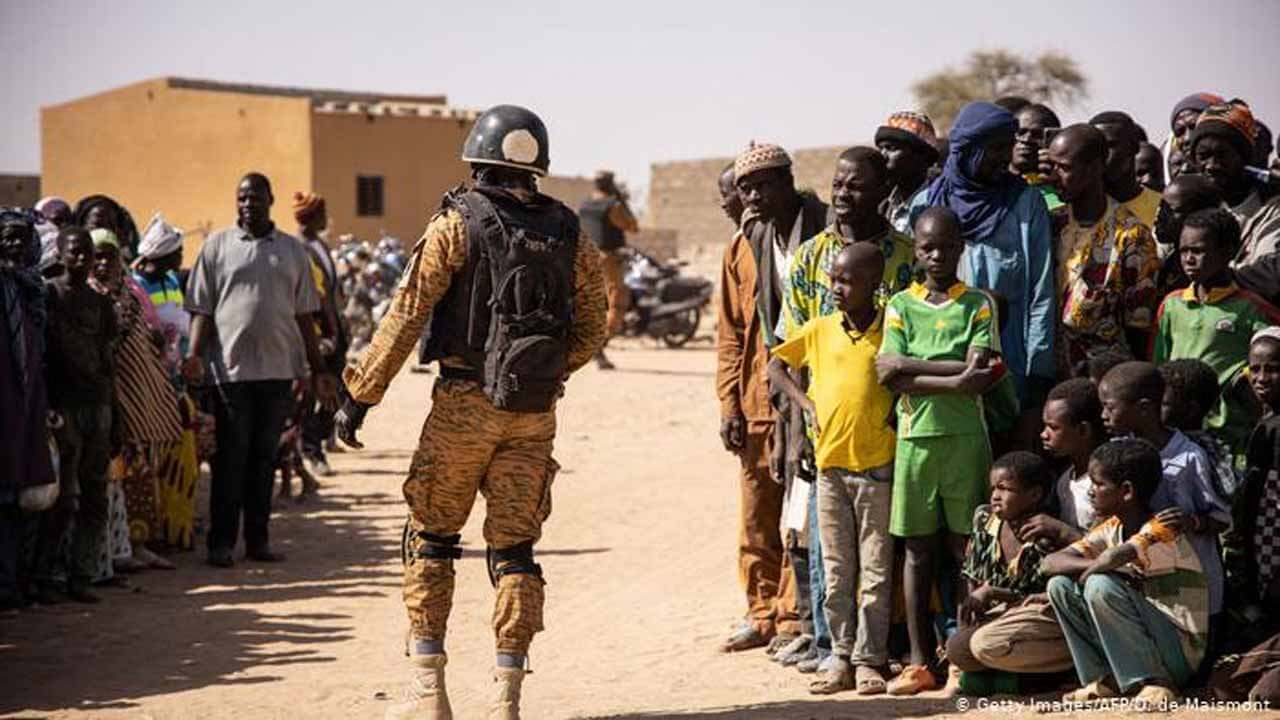Amidst inflammatory social media messages inciting fears of a “genuine civil war” in Burkina Faso, government spokesperson Lionel Bilgo on Thursday condemned the “extremely grave words that send shivers down the spine” for instigating ‘Indigenous’ Burkinabé people to attack Fulanis. He urged citizens to avoid “irreparable” damage and said the country must act “firmly and resolutely” to avoid a situation like the 1994 Rwandan genocide.
In a statement, Bilgo stated that the “hateful and dangerous” messages circulating on WhatsApp amount to “active and direct calls for murder, mass killings, ethnic cleansing and sedition.” He denounced them as “unacceptable in a country as rich and diversified as Burkina Faso.”
The spokesperson stressed that the messages reminded him of the “abuses of Radio Mille Collines (Rwanda),” describing the Hutu-Tutsis genocide as “one of the worst tragedies of humanity from which we must learn the lessons.”
Burkina Faso Govt condemn hate speeches circulated in audios on social networks and calling for, among other things, killings and ethnic cleansing in the country especially against #Fulbe #Herders. The Govt reiterates inclusion of citizens irrespective of creed or ethnicity. pic.twitter.com/g0tA63O5jL
— Tracking Fulani Hate (@FulbeHateTrackr) August 18, 2022
His comments come against the backdrop of audio recordings circulated on social media channels that called on “natives” to abuse and kill Fulani minorities, especially in the southwestern region of the country.
Incendiary messages and hate speech targeting minority communities were also taken note of by former Foreign Minister Alpha Barry, who warned on Tuesday that such posts incite “the risk of a genuine civil war.” He urged politicians and community leaders to lead outreach efforts to foster “cohesion” in the country.
Interestingly, Bilgo’s comments on Thursday follow a report by the Collective Against Impunity and Stigmatization of Communities (CISC) accusing the Burkinabé Defense and Security Forces (FDS) of “summary and extrajudicial executions” of 40 civilians, mostly Fulanis, including women and children, in the northern region Tougouri two weeks ago. The rights group condemned the patterned killings, in which “all of the people killed had their hands tied and were blindfolded.”
This was seconded by the non-governmental organisation Observatory for Human Dignity (ODH), which denounced the “barbaric acts” and called on security forces to “stop the practice of kidnapping civilians with their bare hands followed by summary and extrajudicial executions under the false pretext of fighting terrorism.”
Populations in #Mali & #BurkinaFaso have faced months of escalating violence, with a significant increase in attacks by armed Islamist groups & human rights violations by gov't forces.
— Christine Caldera (@ce_caldera) August 18, 2022
Survivors & victims must receive just & effective remedies. More in @GCR2P's #AtrocityAlert ⬇️
These allegations were rubbished by Bilgo, who claimed they were an attempt to “discredit” the army’s counterterrorism operations. He added that an investigation has been initiated to “verify the veracity and accuracy” of these reports.
However, the country’s security forces have regularly been accused of indulging in human rights violations and abuses against civilians whom they suspect of supporting radical Islamists. These offensives have disproportionately targeted ethnic Fulanis, some of whom have been recruited by jihadists over the last seven years. This has resulted in a perception among many Burkinabé that all Fulanis are terrorists, triggering intercommunal tensions and conflict in the west African nation.
These tensions erupted on January 1, 2019 during an attack by armed assailants, presumed to be Fulanis, on the northern Yirgou village that killed six people, including the village chief. The village has historically been a site of communal sensitivity, with the majority Mossi community and Fulanis co-existing there.
The attack fanned tensions and prompted retaliatory attacks against Fulanis, resulting in the death of around 146 civilians in the bloodiest communal conflict in the country’s history.
Since then there has been frequent violence between the agriculturist Mossis and Fulani herdsmen, who clash for control over water and grazing land. Additionally, radical Fulani preachers such as Ibrahim Malam Dicko remain active in northern Burkina Faso.
Armed Islamist groups in Burkina Faso have carried out hundreds of killings, summary executions, rapes of civilians, and widespread pillaging. Government security forces and militias have killed hundreds of civilians, fueling recruitment into armed groups. https://t.co/3AFSRjW3UD pic.twitter.com/ynlr2pUkIb
— Kenneth Roth (@KenRoth) May 16, 2022
Against this backdrop, the military junta, led by Col. Paul-Henri Sandaogo Damiba, overthrew the elected government of President Roch Kaboré in January over the latter’s failure to arrest jihadist violence. After Damiba seized power in a bloodless coup, he vowed to curtail terrorist threats in the country and even declared two “military interest zones” in northern and eastern regions earlier in June to thwart Islamist insurgencies.
Nevertheless, radical violence has continued unabated in the country, killing thousands and displacing more than two million people since 2015. A May 2022 report by the Human Rights Watch revealed executions, rapes, and murders by armed assailants, and also accused the transitional government of carrying out enforced disappearances, rights violations, and extrajudicial killings.
In fact, recurrent conflicts have had spillover effects in neighbouring Togo and Benin and terrorist attacks by Fulani herdsmen have also been reported in Nigeria and Mali. The greater Sahel region has been reeling under instability and violence over the years with Mali, Guinea, Chad, Burkina Faso, Sudan all having witnessed coups in the last two years, while Niger, too, experienced an attempted military coup.

